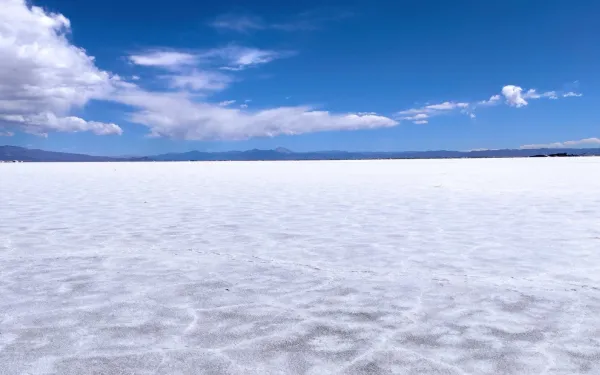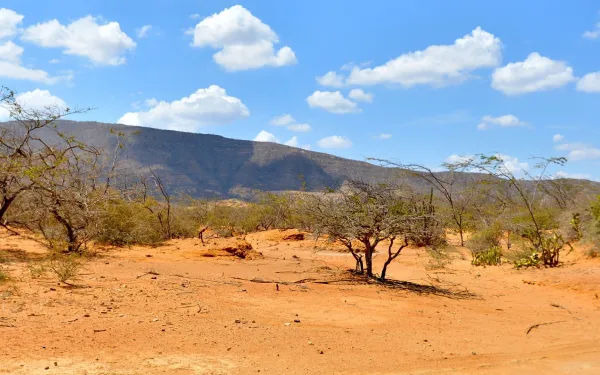
Solidarity note for social movements, organizations, and rights advocates who are victims of criminalization attempts by the company Belo Sun Mineração Ltda.
The undersigned member organizations of the Volta Grande do Xingu Alliance (AVGX) call on partners, civil society organizations, legal experts, and researchers to support and strengthen individuals and movements that, due to their tireless defense of peoples, biodiversity, and the existence of the Volta Grande do Xingu, are facing intimidation and attempted criminalization by the company Belo Sun Mineração Ltda.We need to show large corporations that civil society in Brazil and abroad is united around this cause. We will not step back in protecting the environment and human rights in the face of threats. Sign this note and join us in the protection of the Amazon, the Xingu River, and its defenders!More information below:On October 17, 2023, the mining company Belo Sun Ltda., the Brazilian subsidiary of the Canadian company Belo Sun Mining Corp., filed a criminal lawsuit against more than 30 people, most of them small-scale farmers. These individuals, backed by are questioning the acquisition of land by the mining company within the Ressaca Settlement Project, in the municipality of Senador José Porfírio - Pará, and demanding that this land fulfill its agrarian and social function. These concerns are the basis of a lawsuit in federal court by the federal and local Public Defender’s Offices.The criminal complaint is a clear attempt to silence environmental and human rights defenders. This silencing is intensified by the presence of the company's armed security in the territory. It is also an attempt to criminalize organizations that monitor and denounce the destruction caused by large projects in the Volta Grande do Xingu. On November 15, a group of 25 local movements and organizations, mainly based in Altamira, Pará, issued an open letter condemning the criminalization of farmers, social movements, and civil society organizations promoted by the Canadian mining company Belo Sun. It is essential that the terms of this letter be strengthened and echoed nationally and internationally.This is not the first time that Belo Sun Mineração Ltda. has intimidated civil society organizations and human rights defenders. In 2022, the company filed a lawsuit against a university professor who had exposed the risks that the Volta Grande Project would pose to the Xingu River and its people. In mid-2023, Belo Sun sent an extrajudicial notice to the National Coordination of Indigenous Peoples of Brazil (Apib), attempting to silence the organization's complaints about the risks posed by the mining project in the Volta Grande do Xingu. This notice came shortly after the release of a report on Belo Sun by the legal team of the Apib and an international advocacy action at the UN in Geneva carried out by the Alliance for the Volta Grande do Xingu, a coalition of which Apib is a part. The action aimed to expose corporate abuses by Canadian companies in the Brazilian Amazon and in eight other countries in Latin America and the Caribbean. Regarding Belo Sun's activities in the Volta Grande do XinguBelo Sun aims to establish a massive open pit gold mining project overlapping the PA Ressaca region, on the banks of the Xingu River, with the goal of operating the largest gold mine in Brazil. The so-called Volta Grande Project (PVG), if approved, would substantially and potentially irreversibly impact a territory already severely affected by the Belo Monte mega-dam, as well as affecting the lands and traditional ways of life of various indigenous peoples, rural settlements, and riverside communities in this region.Several lawsuits have been filed documenting the irregularities committed by Belo Sun, including the absence of free, prior, and informed consultarions and consent from the affected indigenous and traditional communities; the illegal acquisition of plots within the PA Ressaca; the harassment and violation of the right to free movement and access to the territory of local communities; and the lack of competence of the State of Pará to issue the environmental license for the PVG. Its licensing has been suspended since 2017 by the decision of the Federal Regional Court of the 1st Region, and on September 11, 2023, it was transferred to the jurisdiction of Ibama, a federal agency. DemandsWe, citizens, civil society organizations, and representatives of social movements who support this statement, condemn the criminalization promoted by Belo Sun Mineração Ltda. We express our solidarity with the victims of this process and emphasize our understanding that:We support the terms of this petition and join voices in denouncing that intimidation and criminalization of human rights defenders, activists, researchers, and leaders of social movements by Belo Sun are unacceptable, and therefore, we support the terms of this petition.The Land Reform Project (Projeto de Assentamento) Ressaca is an area designated for agrarian reform and local family farming located in a region already highly vulnerable from a socio-environmental perspective, making it incompatible with the installation of a large-scale open-pit gold mining project like Belo Sun's Volta Grande Project.The public authorities must take necessary measures to empower the families, communities, and peoples of the Volta Grande do Xingu, ensuring their effective participation in governance and the protection of the territory. The member organizations of the Volta Grande do Xingu Alliance issuing this statement and calling for endorsements are:Articulação dos Povos Indígenas do Brasil - APIBMovimento Xingu Vivo - BrasilAmazon WatchInterametican Association for Environmental Defense - AIDAInternational RiversEarthworks Justiça GlobalMiningWatch Canada Join us in protecting the Amazon, the Xingu River, and their defenders!Sign the note of international solidarity against the judicial harassment being carried out by Belo Sun: https://forms.gle/tzUzR47v72jsdEPN8
Read more








